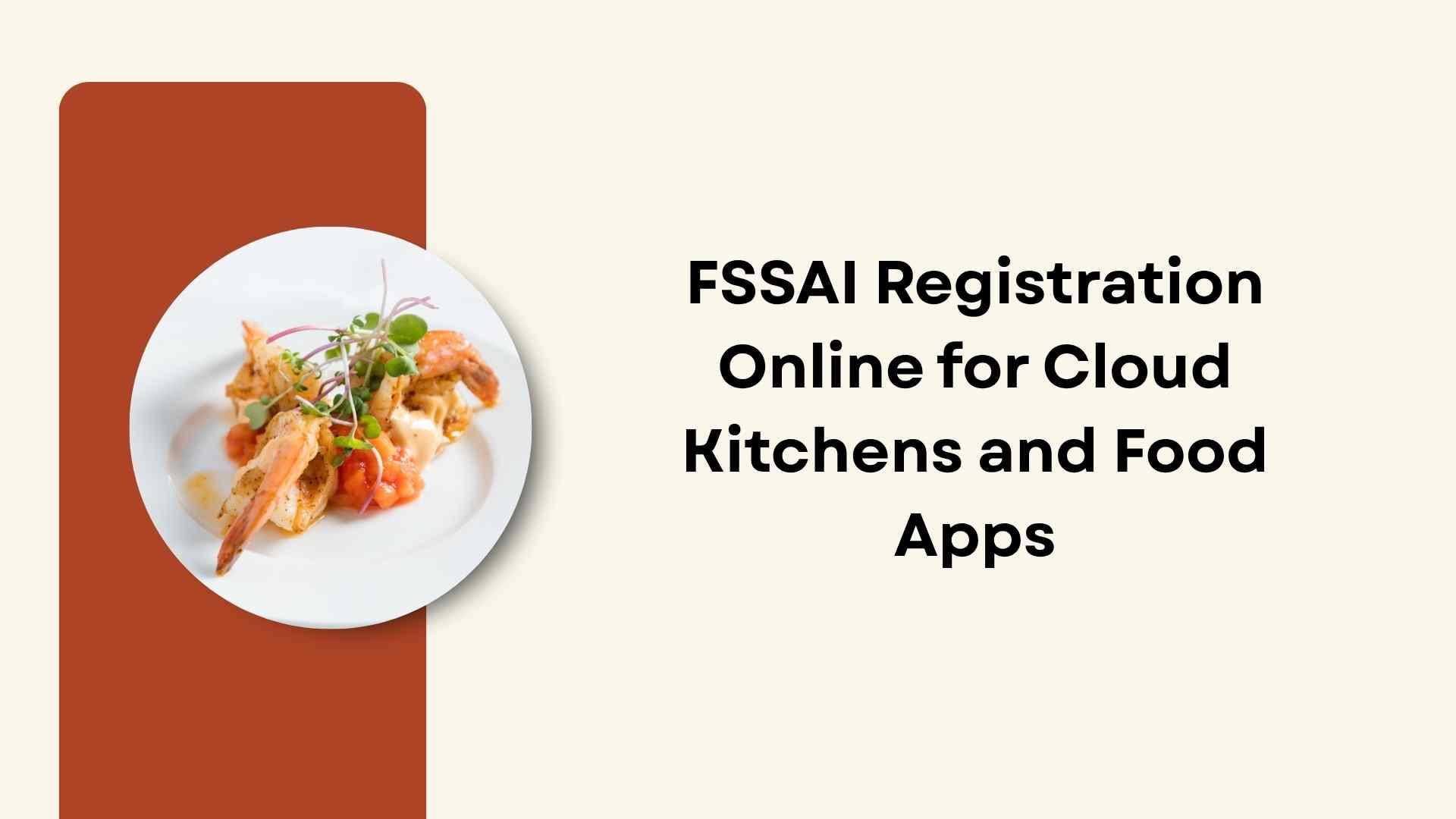With the explosion of food delivery services and the rising popularity of cloud kitchens, the food industry has witnessed a digital transformation. However, amidst all the innovation, one requirement remains non-negotiable: FSSAI Registration. Whether you're running a cloud kitchen or a food delivery app, registering with the Food Safety and Standards Authority of India (FSSAI) is not just a legal obligation; it's a business advantage. In this article, we’ll explore the importance, process, and benefits of FSSAI registration online for cloud kitchens and food tech entrepreneurs.
Understanding FSSAI Registration
What is FSSAI?
FSSAI is the governing body under the Ministry of Health & Family Welfare, responsible for ensuring food safety and hygiene in India. It lays down the standards and guidelines to regulate the manufacture, storage, distribution, sale, and import of food products.
Why Registration is Mandatory
Under the Food Safety and Standards Act, 2006, every food business operator (FBO), including cloud kitchens and aggregator-based food delivery services, must be registered or licensed by FSSAI.
What is a Cloud Kitchen?
A New-Age Food Model
A cloud kitchen, also known as a ghost kitchen or dark kitchen, is a commercial kitchen space that prepares food for delivery-only services. There’s no dine-in facility, and orders come in through online food aggregators like Zomato, Swiggy, or directly via mobile apps and websites.
Why It’s Trending
Lower overhead costs, minimal infrastructure, and the ability to run multiple brands under one roof make cloud kitchens a preferred model for aspiring restaurateurs.
Why FSSAI Registration is Crucial for Cloud Kitchens and Food Apps
1. Legal Compliance
Operating without FSSAI registration is illegal and can lead to fines, suspension, or business closure. Legal compliance ensures your cloud kitchen or food app can operate without fear of regulatory action.
2. Consumer Trust and Transparency
Displaying an FSSAI license number on your website or app builds trust. Consumers feel more confident ordering food from a source that meets government safety standards.
3. Aggregator Requirement
Leading food aggregators like Swiggy and Zomato require FSSAI registration to onboard your business. Without it, you cannot list your kitchen or brand on their platforms.
4. Brand Credibility
An FSSAI registration adds legitimacy to your brand. It shows you prioritize hygiene, safety, and quality, which is essential in the food business.
5. Business Expansion
Whether you plan to expand across cities or seek funding, having a valid FSSAI registration is a prerequisite. It’s often requested by investors and partners.
Types of FSSAI Licenses
1. Basic Registration
For small operators with an annual turnover of less than Rs. 12 lakhs.
2. State License
For mid-sized businesses with a turnover between Rs. 12 lakhs and Rs. 20 crores. Ideal for single-city cloud kitchens.
3. Central License
For large businesses operating in multiple states or with turnover above Rs. 20 crores. Also required if you're exporting food.
Step-by-Step: How to Apply for FSSAI Registration Online
Step 1: Access the FSSAI Portal
Begin by visiting the official FSSAI registration website through your preferred web browser.
Step 2: Complete the Registration Form
Enter all required details, such as your name, type of food business, business address, and upload necessary documents like your PAN card.
Step 3: Review and Submit Your Details
Carefully check all the information you’ve entered. Once verified, submit the application form for processing.
Step 4: Make the Payment Online
Proceed to pay the applicable registration or licensing fee using net banking, debit/credit card, or UPI, based on your license category.
Step 5: OTP Authentication
To confirm your identity, enter the OTP sent to your registered mobile number or email address.
Step 6: Premises Inspection (If Applicable)
If required, an FSSAI official may visit your premises for a physical inspection before approving.
Step 7: Download Your FSSAI License
Once your application is approved, you will receive your FSSAI registration/license. You can download it directly from the portal.
Documents Required
-
Owner's ID proof (Aadhaar/PAN)
-
Business registration certificate
-
Address proof of the kitchen
-
Food safety management plan (for State/Central license)
-
Utility bills
-
No Objection Certificate (NOC) if rented premises
Compliance Tips for Cloud Kitchens
1. Maintain Hygiene Protocols
Regularly sanitize workstations, use clean water, and wear protective gear.
2. Proper Food Storage
Use food-grade containers, label ingredients, and follow the FIFO (First In First Out) method.
3. Temperature Control
Cook, store, and deliver food at appropriate temperatures to maintain safety.
4. Employee Training
Train staff on personal hygiene and safe food handling practices.
5. Renew FSSAI License on Time
Licenses are valid for 1-5 years. Apply for renewal at least 30 days before expiry.
Common Mistakes to Avoid
-
Submitting incorrect or incomplete documents
-
Failing to update business details
-
Operating after license expiry
-
Not displaying the FSSAI license number on packaging or platforms
Also Read: FSSAI License for Fish Exporters in India
Conclusion
In a digital-first food economy, building consumer trust is as important as delivering delicious meals. FSSAI registration online ensures your cloud kitchen or food app runs legally, gains credibility, and is ready to scale. Whether you’re a solo chef starting your food brand from home or an entrepreneur managing multiple kitchens, don’t skip this essential step.



